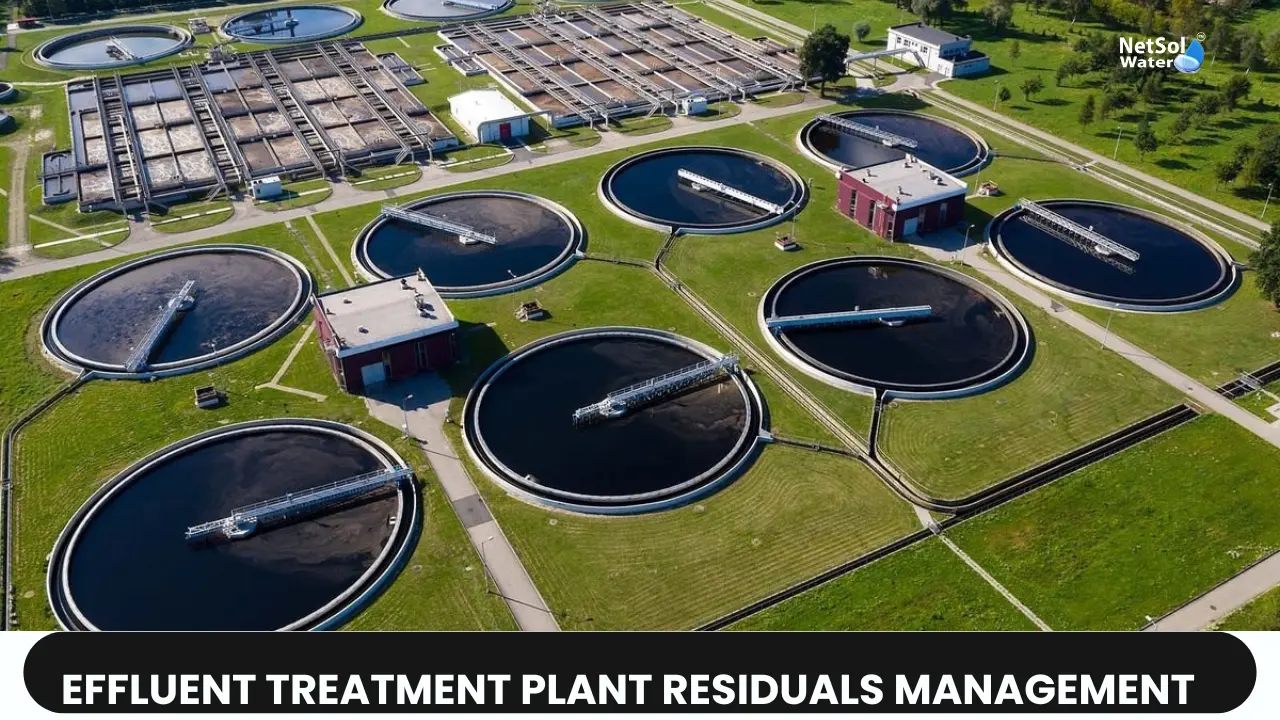Industrial effluent treatment plants are essential for preventing the discharge of pollutants into natural water bodies. However, these facilities themselves generate significant volumes of concentrated residuals or sludges that require proper management and disposal. The nature, quantity and characteristics of residuals produced depend on the influent wastewater composition and specific treatment operations employed. Sustainable and compliant residual management is thus a crucial aspect of the overall effluent treatment approach.
Let's know about the various types of residuals, strategies employed by treatment plants for managing them, and innovative approaches for minimising environmental impacts.
Types of Residuals from Treatment Plants
Effluent treatment processes result in solid, semi-solid or liquid residual streams:
Primary Sludges
Generated from primary clarification, dissolved air flotation or gravity separation of settleable solids. High in organic matter, oils/grease and inert suspended particles.
Biological Sludges
The excess activated sludge or biomass wasted from aeration basins during secondary biological treatment. Contains living and decaying microbial mass.
Chemical Sludges
Precipitates and metal hydroxides generated when using coagulants, flocculants or precipitating chemicals for phosphorus/heavy metal removal.
Filter Backwash
The concentrated sludge or spent filter media generated during routine backwashing of granular or membrane filters is used for tertiary polishing.
Residuals Management Approaches
For efficient processing, the typical management approach involves:
Thickening and Dewatering
Gravity thickeners, centrifuges, or belt filter presses are used to reduce moisture content and volumes requiring transport.
Stabilisation
Treating residuals by anaerobic or aerobic digestion to stabilise organic matter, reducing odours and pathogen levels while enabling biogas recovery.
Conditioning
Conditioning agents like lime, ferric chloride, or polymers should be added to improve dewatering and solidification characteristics. Betters handling and lowers disposal volumes.
Disposal or Reuse
Methods for handling stabilised residuals include landfilling, land application as biosolids, composting or potential valorisation into products.
Innovative Solutions
Recent developments are enabling more sustainable residuals management:
Chemical-free Sludge Thickening
Innovative membrane-based systems like gravity belt thickeners or rotary fan presses can be used to achieve higher solid content thickening without flocculants.
Two-Stage Anaerobic Digestion
Implementing temperature-phased digestion with specialised microbes to improve biogas/biosolids yield while enabling direct land application without dewatering.
Forward Osmosis Concentrators
Natural osmotic gradients are used as a low-energy method to concentrate and dewater sludges with minimal emissions.
Residuals Valorization
Extracting usable products from effluent residuals like bioplastics, biofuels, enzyme proteins, fertilisers and soil amendments.
As environmental regulations tighten and waste management costs rise, industries are increasingly opting for advanced effluent treatment plants. This makes optimising residual management strategies absolutely vital from a sustainability standpoint.
Conclusion
Effluent treatment plants cannot function without a well-designed residual management train for handling concentrated sludges and solids removed during various treatment stages. The residuals' quantity, composition and environmental impact risks demand carefully planned management measures. Increasingly, a shift is occurring from conventional residual drying, digestion and landfilling towards more environmentally progressive approaches. The goal is minimising waste volumes requiring disposal through process innovations while also extracting useful byproducts wherever feasible. With rising waste management costs and sustainability goals, optimising residual processing can unlock both environmental and economic value for industrial effluent treatment operations. Future-ready plants need to prioritise this critical aspect alongside their water treatment responsibilities.
To explore customised commercial RO plants, Industrial RO plants, ETP or STP solutions for your needs in your areas and nearby regions, contact Netsol Water at:
Phone: +91-965-060-8473
Email: enquiry@netsolwater.com



